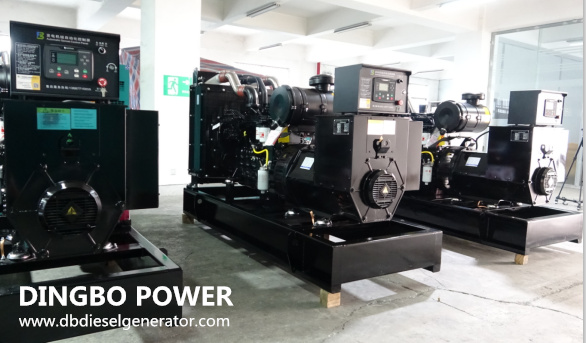dingbo@dieselgeneratortech.com
+86 134 8102 4441

- Home
- Products
- About Us
- Service
- News
- Technical Support
- Contact Us
dingbo@dieselgeneratortech.com
+86 134 8102 4441
Mar. 17, 2025
In modern times, diesel generators have become standard equipment across various industries. When grid power fails or becomes insufficient, diesel generator sets provide continuous and stable power supply for businesses or factories. A diesel generator set consists of three main components: a diesel engine, an alternator, and a control system. So, what exactly is an alternator?
Alternators can be categorized into two main types: DC generators and AC generators. AC generators are further subdivided into synchronous generators and asynchronous generators. In modern power stations, synchronous generators have become the most widely used type due to their unique excitation methods and ability to provide both active power and reactive power simultaneously. In contrast, asynchronous generators feature simpler construction and easier operation. However, their lack of independent excitation windings prevents them from supplying reactive power to loads and requires them to draw lagging magnetizing current from the grid. This necessitates parallel operation with other synchronous machines or connection with multiple capacitors, limiting their applications primarily to small automated equipment and DC power supply needs for urban trams, electrolysis, and electrochemical industries.

An AC generator is a key component of a diesel generator. It is used to convert mechanical energy into electrical energy and responsible for generating the electrical power that is output by the generator. An AC generator mainly comprises multiple alternating N-S pole permanent magnets made of magnetic material (called rotor) and an armature coil made of silicon cast iron with multiple series-wound coil groups (called stator).
The working principle is that the rotor, driven by the diesel engine, axially cuts magnetic flux lines. The alternately arranged magnetic poles in the stator create alternating magnetic fields in the coil core. With each full rotation of the rotor, the direction and magnitude of magnetic flux change multiple times. This magnetic field variation induces alternating current in the coils, which is then output through the stator windings. To protect electrical equipment and maintain normal operation, the current produced by the generator requires regulation and control through voltage regulators.
Most modern AC generators are brushless types with rotating excitation systems. When selecting an alternator for your diesel generator set, ensure that it is mechanically compatible with the diesel engine. Electrically, the alternator should provide required kW output at specified voltage, frequency, ambient temperature, and altitude, while being capable of withstanding transient loads without exceeding maximum allowable voltage dips. Typically, an Automatic Voltage Regulator (AVR) is provided as part of the alternator to ensure compatibility. Brushless AC generators use rotating exciter generators to produce the excitation current and voltage required for magnetizing the main rotor. The AVR controls rotor excitation based on sensed generator output voltage. The alternator speed must match the diesel engine speed - lower speeds require more rotor poles to maintain fixed 50Hz or 60Hz frequency regardless of rotational speed.
There are typically two connection methods between diesel engines and AC generators: flexible connection using couplings, and rigid connection using high-strength bolts to join the generator's rigid connecting plate with the engine flywheel. Currently, rigid connection is more prevalent in practical applications. After installation, various sensors (e.g., water temperature sensors) monitor the diesel engine's operating status and display data to operators. When parameters reach or exceed preset limits, the control system issues warnings. If operators fail to respond promptly, the system automatically shuts down for protection. Sensors play crucial roles in receiving and feeding back information, while the unit's control system analyzes data and executes protective measures.
In a word, alternator is a key component in diesel generator and it produces electrical energy from the mechanical energy supplied to it by the engine. When buying a diesel-powered generator, selecting the right size and type of alternator is essential.
Quicklink
Mob.: +86 134 8102 4441
Tel.: +86 771 5805 269
Fax: +86 771 5805 259
E-mail: dingbo@dieselgeneratortech.com
WhatsApp: +86 134 8102 4441
Add.: No. 10 Kechuang Road, High tech Zone, Nanning, Guangxi, China